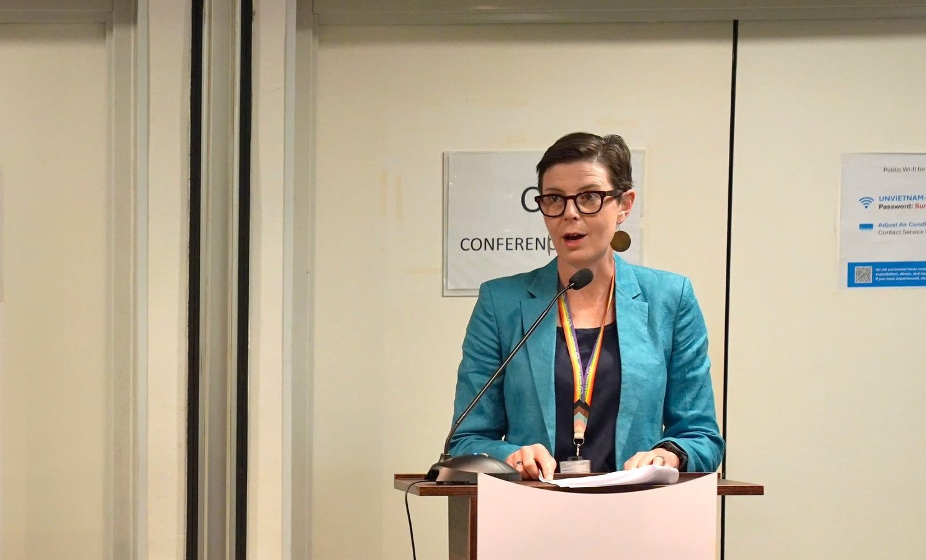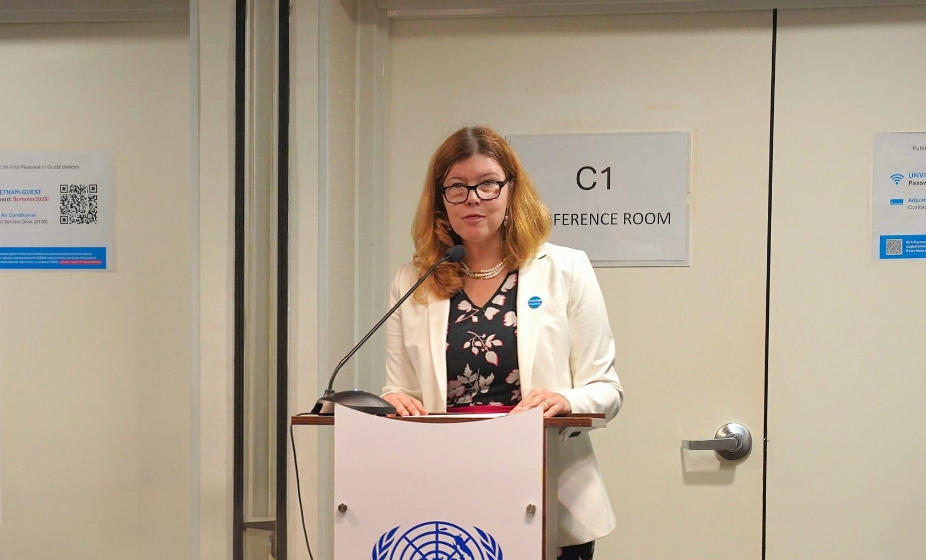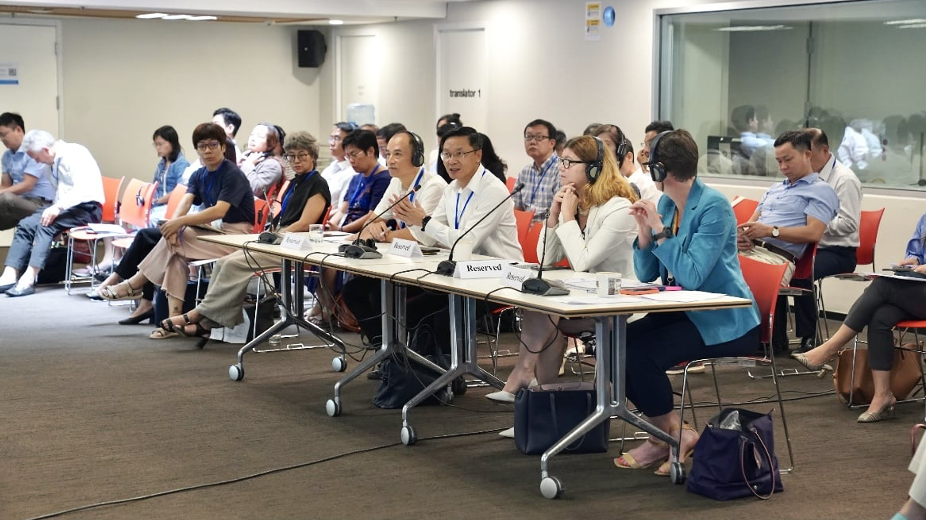On September 23, the Ministry of Health, the Ministry of Agriculture and Environment, and three United Nations agencies, the World Health Organization (WHO), the United Nations Development Programme (UNDP) and the United Nations Children's Fund (UNICEF), organized a workshop with the theme "Consultation Workshop on Climate Change and Health: Promoting Health Integration into Vietnam's NDC 3.0 Report".
This consultation workshop marks an important milestone in Viet Nam’s commitment to the Paris Agreement and its efforts to protect public health from the impacts of climate change. WHO, UNICEF and UNDP are committed to continuing to support Viet Nam in ensuring health is a priority in national climate strategies and that no one is left behind.
 Dr. Angela Pratt, WHO Representative in Vietnam, spoke at the workshop.
Dr. Angela Pratt, WHO Representative in Vietnam, spoke at the workshop.Climate change is a health crisis, contributing to increased frequency and severity of disease outbreaks (such as dengue fever), extreme weather events, and threatening access to clean water – especially in vulnerable areas of Vietnam.
Carbon emissions not only accelerate climate change but also worsen air pollution. The healthcare system is on the front line of this crisis. It is estimated that by 2050, the impacts of climate change could cost Vietnam between $1 billion and $3 billion in healthcare costs and up to $23 billion in lost productivity. 70% of Vietnam’s population lives in coastal or low-lying areas vulnerable to flooding, saltwater intrusion and extreme weather.
 Ms. Silvia Danailov, UNICEF Representative in Vietnam, spoke at the workshop.
Ms. Silvia Danailov, UNICEF Representative in Vietnam, spoke at the workshop.Dr Angela Pratt, WHO Representative in Vietnam, emphasized that as a member of the Alliance for Transformative Action on Climate and Health (ATACH), Vietnam is promoting technical cooperation and knowledge exchange to develop low-carbon and climate-resilient health systems. In addition, the ambition to reduce air pollution in Vietnam's major cities is also in line with the overall goals towards a cleaner environment and a healthier population.
“At the national level, Viet Nam has demonstrated strong leadership and commitment and is playing an increasingly important role in global and regional efforts, including as a very active member of the ATACH Alliance. Strong national climate targets and policies will bring significant health and economic benefits. Strengthening the health component of Viet Nam’s NDC 3.0 will help ensure that climate action truly saves lives and improves people’s health and well-being. WHO is strongly committed to supporting the Government of Viet Nam in all these efforts,” she said.
 Delegates attending the workshop
Delegates attending the workshopMs. Ramla Khalidi, UNDP Resident Representative in Viet Nam, emphasized: "Healthy people are the foundation of a strong economy, a productive workforce and a prosperous society. An ambitious NDC that puts health at the center can unlock new sources of finance, strengthen resilience, and deliver better outcomes for people and the planet.